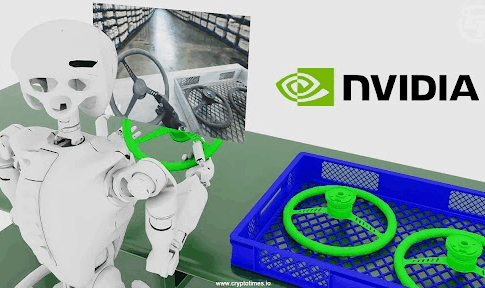At the forefront of technological innovation, Nvidia has unveiled a suite of pioneering AI models that promise to revolutionize various sectors, from robotics and biotech to autonomous vehicles. These advancements, showcased at the International Conference on Learning Representations (ICLR 2025) in Singapore, mark a significant shift from traditional AI applications, propelling the technology into real-world arenas where machines can act, adapt, and reason in high-stakes environments.
Central to Nvidia’s latest offerings is a focus on agentic and foundational AI models. Bryan Catanzaro, Nvidia’s vice president of applied deep learning research, emphasized the company’s commitment to enhancing AI’s practical impact across industries. “We aim to accelerate every level of the computing stack to amplify the utility of AI,” Catanzaro shared with Fast Company. This initiative seeks to transcend conventional applications, empowering AI to solve tangible problems in real-world settings.
Among the breakthroughs is the Skill Reuse via Skill Adaptation (SRSA) framework, which addresses a longstanding challenge in robotics: adaptability without extensive retraining. This model enables robots to tackle unfamiliar tasks by leveraging a library of previously learned skills, significantly improving efficiency and success rates. This innovation is poised to transform industries like manufacturing and logistics, where dynamic environments demand rapid adaptability.
In the biotech sector, Nvidia’s Proteína model stands out, offering a groundbreaking approach to protein design—essential in drug development. By generating new protein structures with specific shapes and properties, Proteína opens the door to unprecedented advancements in enzyme engineering and vaccine development. Nvidia claims it surpasses existing models in generating large-chain proteins, positioning itself as a leader in biotechnological innovation.
Nvidia’s Spatio-Temporal Occupancy Reconstruction Machine (STORM) is another highlight, designed to create real-time, 3D spatial maps for autonomous vehicles and augmented reality systems. Capable of reconstructing dynamic environments in under 200 milliseconds, STORM enhances decision-making speed and accuracy, paving the way for safer and more efficient autonomous navigation.
Beyond physical applications, Nvidia is advancing AI’s cognitive capabilities with Nemotron-MIND, a project aimed at enhancing mathematical and general reasoning. By transforming complex math documents into conversational dialogues, MIND helps AI models articulate problem-solving processes, mimicking human-like reasoning.
Acknowledging the resource-intensive nature of AI development, Nvidia is launching Nvidia Inference Microservices (NIMs) to democratize AI access. This suite of tools simplifies AI deployment, enabling even smaller organizations to integrate and scale AI solutions efficiently.
With these groundbreaking innovations, Nvidia is not only reshaping the future of AI but also reinforcing its role as a catalyst for technological progress across diverse fields. As AI continues to evolve, its collaboration with human expertise will be pivotal in unlocking new possibilities and driving global advancement.


